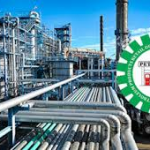The Nigerian National Petroleum Company Limited has set a new target of June 2026 to finalise the selection of technical partners for the nation’s state-owned refineries, aiming to address decades of underperformance and declining technical capacity. The announcement was made during a press briefing in Abuja, where the company also reported a record Profit After Tax of N5.4 trillion for the 2024 financial year, the highest in its history.
NNPCL’s refineries in Port Harcourt, Warri, and Kaduna, despite ongoing rehabilitation projects, remain far below international standards, producing fuels that are commercially uncompetitive compared to privately owned facilities like the Dangote Refinery. The company plans to partner only with private entities that already operate functioning refineries with verifiable track records. These partnerships will be structured as commercial business arrangements rather than government-led collaborations, with private partners leading operations while NNPCL provides complementary resources and oversight.
The company is also considering redesigning its refineries into hybrid plants to meet global specifications and improve competitiveness in international markets. Firm completion dates will be announced after these redesign and hybridisation plans are finalised, with a clearer timetable expected by mid-2026.
Nigeria’s three state-owned refineries, with a combined capacity of 445,000 barrels per day, have struggled for over a decade despite investments totalling around N18 trillion in turnaround maintenance. Port Harcourt is undergoing a $1.5 billion rehabilitation, Warri is being revamped with Daewoo Engineering, and Kaduna requires extensive upgrades to handle complex crude. The emergence of the Dangote Refinery, producing Euro-V standard fuels, has further highlighted the technological gap and the urgent need for private expertise.
Beyond refining, NNPCL is also working to increase Nigeria’s crude oil output to 1.7 million barrels per day by year-end, up from 1.5 million barrels last year, with a target of 1.8 million barrels next year and two million barrels by 2027. The company credits improved security, upstream investments, and better joint venture financing for the upward trajectory.
NNPCL now operates as a limited liability company under the Petroleum Industry Act, giving it greater commercial freedom to engage in business-driven partnerships. The Group Chief Executive emphasised that governance reforms, transparency, and staff development remain central to the company’s ambition to become one of the most competitive energy companies in Africa, supported by over 12,000 direct and indirect staff being trained in advanced technical skills.
The new strategy reflects NNPCL’s commitment to reviving Nigeria’s refining sector, attracting investment, and ensuring that the country can produce globally competitive fuels while strengthening its position in the continental energy market.










